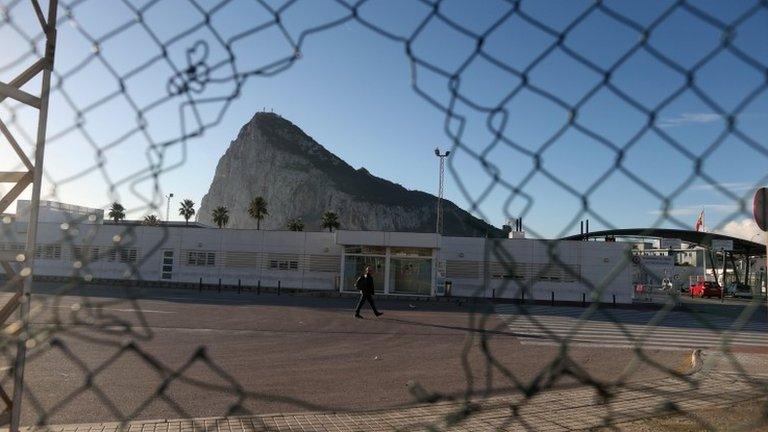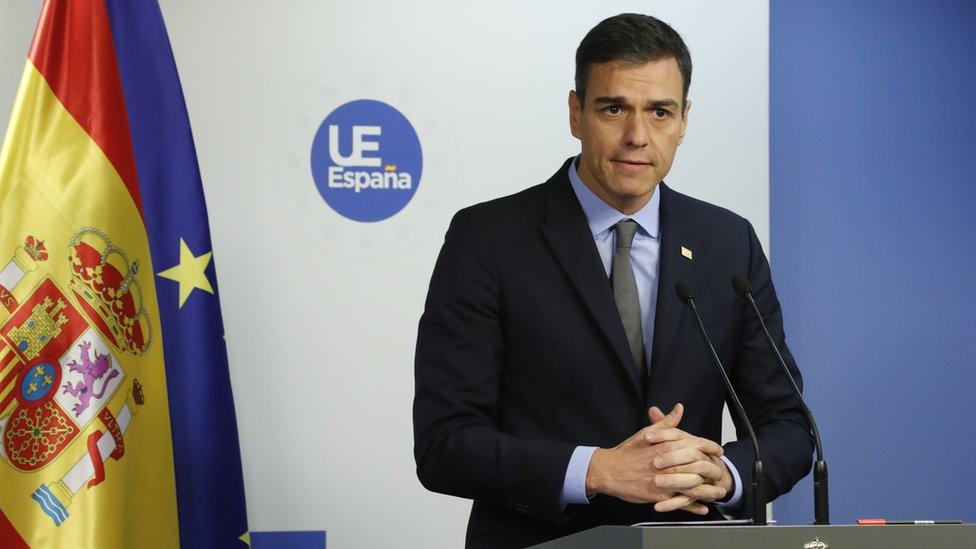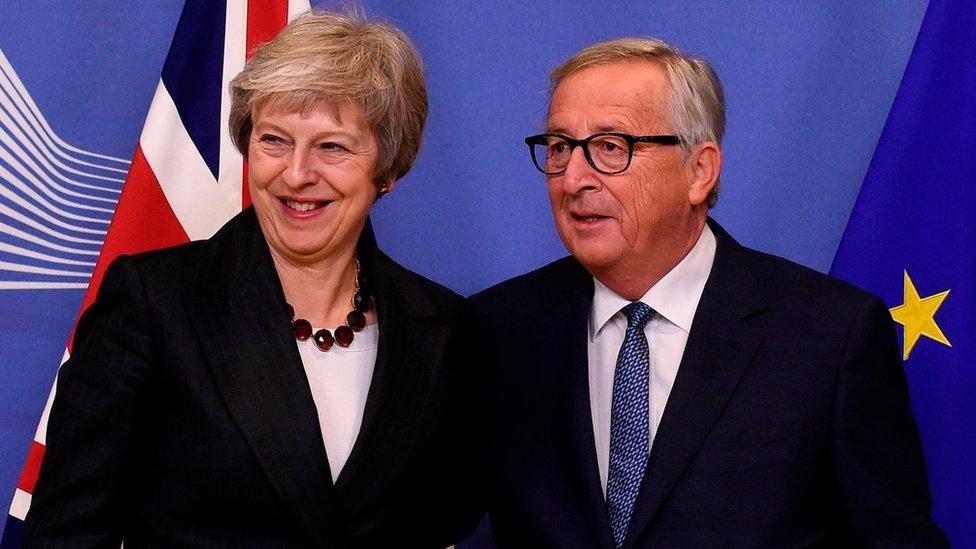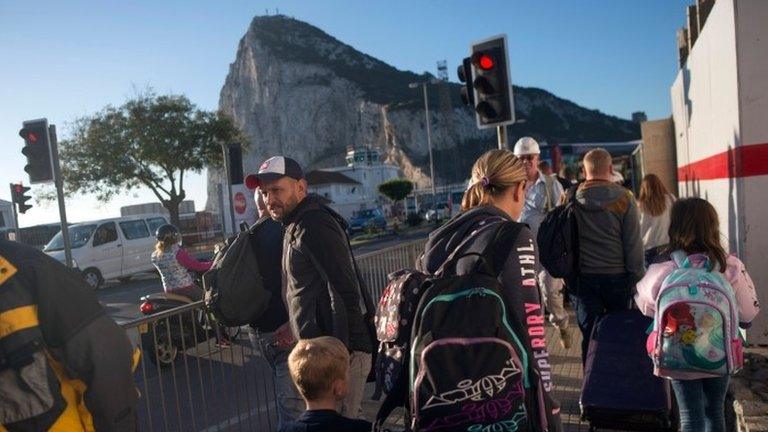Brexit: EU leaders fail to give May political cover
- Published

As they war-gamed a series of scenarios leading up to the "meaningful" Brexit vote next month, Downing St aides needed two big gains from this weekend's EU summit.
To have any hope of winning that vote, No 10 needed EU leaders to declare that Theresa May had negotiated a deal that will settle UK-EU relations. And mindful of the importance of Labour votes, Downing St also needed the EU's centre left leaders to call on Jeremy Corbyn to back the deal.
On both fronts, Downing St's calculations are in trouble.
Emmanuel Macron, the French President, indicated that UK-EU relations are far from settled as he made clear that he would use access to UK fishing waters as a weapon in the next stage of negotiations.
And the most important centre left leader in the EU who is meant to put pressure on Jeremy Corbyn to back the deal? That would be Pedro Sanchez, the Spanish prime minister, whose decision to put Gibraltar on the table now makes him a highly contentious figure in the UK.
Downing St officials and ministers supportive of Theresa May genuinely believe she can win the meaningful vote - due to be held in the second week of December.
But they believe the atmosphere needs to change, which is why the dynamics of the weekend EU summit were so important in their calculations.
The EU figures directly involved in negotiating with the UK delivered the agreed No 10 script in word perfect form. Jean-Claude Juncker, the European Commission president who met Theresa May twice in the run up to the EU summit, spoke of his sadness at the departure of the UK, but said there is no better deal.
Four scenarios
Michel Barnier, the EU's chief Brexit negotiator, used similar language to Mr Juncker. And prime minister of the Netherlands Mark Rutte, traditionally a close UK ally, said there was no plan B.
These interventions were designed to show Brexiteers that you cannot have the withdrawal agreement with one core element - the Northern Ireland backstop - lobbed off.
But the Lithuanian president, Dalia Grybauskaite, suggested that the picture may be rather more complex when she indicated that the EU's original Brexit calculation still stands. If the UK would adapt its red lines then the EU would adapt its position.
President Grybauskaite said that if the UK Parliament voted no to the deal, four scenarios could emerge - another referendum, a general election, renegotiations or no deal. As a former EU budget commissioner, Grybauskaite knows her way round the EU.

Spanish prime minister Pedro Sanchez made things more complicated for Mrs May.
So the EU may be open to some form of negotiations if Parliament rejects the deal, tacks away from the Brexiteers and is prepared to soften the prime minister's red lines. This would mean May's deal is not the only deal available.
And Theresa May's job in winning over Brexiteers became a lot trickier after President Macron undermined one of her central claims - that her deal will settle UK-EU relations.
The prime minister said that as a reborn independent coastal state, the UK will have the final say over access to its fishing waters, ensuring there can be no link between fishing and trade deals. But President Macron suggested that the political declaration on the future relationship gives the EU a lever.
The document says the UK and the EU are due to ratify a new fisheries agreement by 1 July 2020. That is the time when the UK and the EU are due to decide whether a hard border in Northern Ireland can be avoided by a new trade deal or whether one of two other options is triggered. They are the Northern Ireland backstop or extending the transition.
So President Macron appears to be suggesting that he could tie up the UK in an unfavourable scenario - an endless backstop for example - if it fails to allow favourable access to its fishing waters.
With Spain's Pedro Sanchez no longer of political use to the government, it could look to the other main PES leaders, Antonio Costa, the prime minister of Portugal, and Stefan Lofven, the prime minister of Sweden. Portugal and Sweden are old UK allies. But in EU terms they are hardly giants.
Theresa May is clearly going to spare no effort over the next two weeks in selling her deal around the UK because she can genuinely see a route to victory in Parliament. The EU helped her by unanimously backing the deal at its summit. But the little extra help she was hoping for did not quite materialise as No 10 had hoped.
You can watch Newsnight on BBC 2 weekdays 22:30 or on iPlayer. Subscribe to the programme on YouTube, external or follow them on Twitter, external.
- Published22 November 2018

- Published20 November 2018
